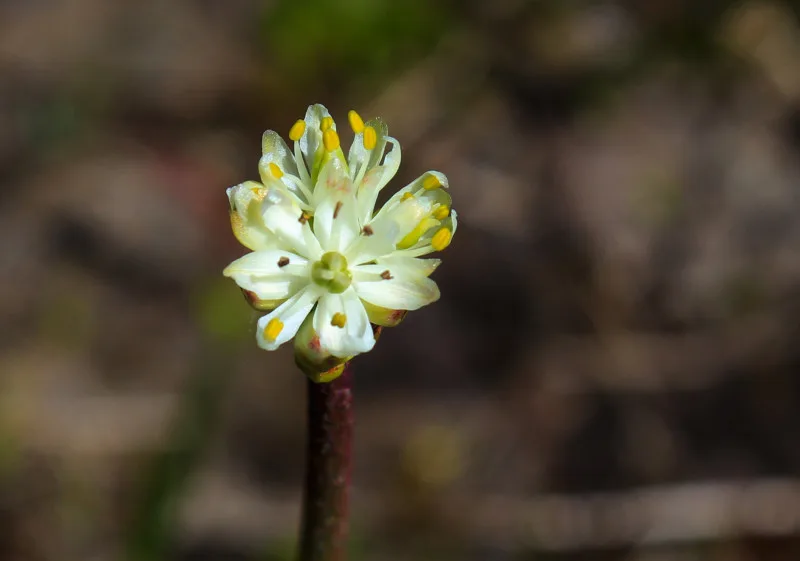
New kind of carnivorous plant discovered in B.C.
The plant, the first new carnivorous variety discovered in 20 years, has a unique system for trapping small insects while leaving pollinators unharmed.
Scientists at the University of British Columbia and the University of Wisconsin–Madison have described a new kind of carnivorous plant – in fact, the first such discovery in 20 years.
The plant in question, a species of false asphodel known as Triantha occidentalis, doesn't look like it would be much of a menace to anything, with its main feature being a delicate-looking white flower.
But any small insects choosing to alight on the plant's stem will meet a literally sticky end: it's covered in fine hairs that trap small insects, then uses a special enzyme to digest and extract nutrients from them.

Flower of Triantha occidentalis in a bog at Cypress Provincial Park, British Columbia. Photo: Danilo Lima
The flower is native to boggy areas near the west coast of North America, ranging from California to Alaska. The scientists based their research on specimens taken from Cypress Mountain in North Vancouver.
Such environments can be nutrient-poor, which might explain why the plant supplements its diet with insects, but what's unusual about it is that it's developed a way to only trap small prey, leaving larger pollinators free to safely access the plant's flowers.
“We believe that Triantha is able to balance carnivory with pollination because its glandular hairs are not very sticky and can only trap midges and other small insects, so that the much larger and stronger bees and butterflies that act as its pollinators are not captured,” co-author Dr. Tom Givnish of the University of Wisconsin-Madison said in a statement from UBC.

Triantha occidentalis traps insects. Photo: Dr. Qianshi Lin
The research was published in the journal Proceedings of the National Academy of Sciences.
The researchers also note that since Triantha has gone this long without discovery despite its proximity to major urban centres along the west coast, that suggests other such plants, and other 'ecological surprises,' may be uncovered in the future.
